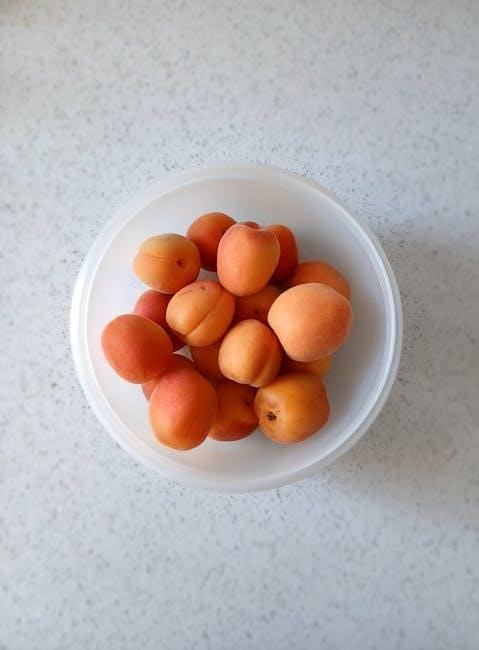A bland diet consists of foods that are soft, low in fiber, and not spicy. Also known as a soft or gastrointestinal soft diet, it aims to rest the digestive system.
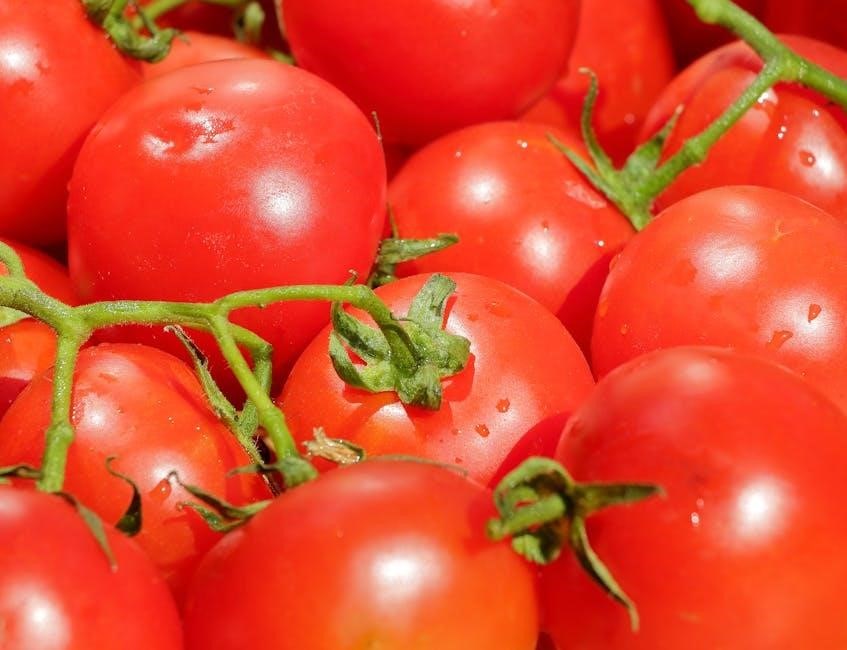
Bland Diet Overview
Definition and Purpose of a Bland Diet
A bland diet is characterized by foods that are soft in texture, low in dietary fiber, and intentionally lacking in strong or irritating spices. It’s also referred to as a soft diet, low-residue diet, or gastrointestinal soft diet, with the primary purpose of providing rest and relief to the digestive system. The goal is to include easy-to-digest options while excluding items that could potentially cause irritation or discomfort, such as alcohol, caffeine, or high-fat foods. This dietary approach helps manage digestive symptoms and promote healing in the gastrointestinal tract.
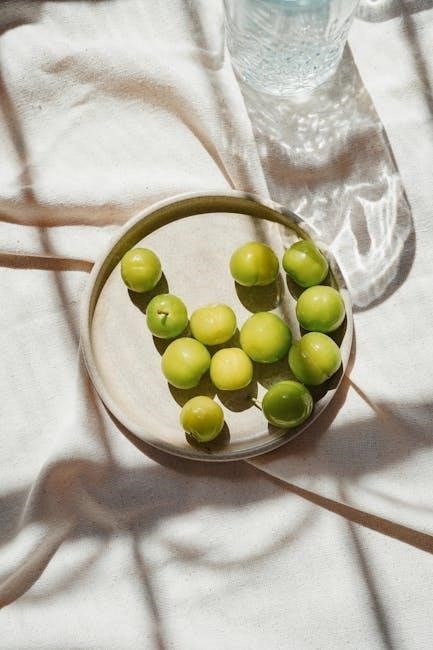
Foods Allowed on a Bland Diet
Examples of Acceptable Foods (Rice, Potatoes, Chicken, Fish, Non-Acidic Fruits, Low-Fat Dairy)
Acceptable foods include plain rice, boiled potatoes, cooked veggies without seasoning, chicken or fish, non-acidic fruits, and low-fat dairy. These are generally easy to digest.
Examples of Acceptable Foods (Rice, Potatoes, Chicken, Fish, Non-Acidic Fruits, Low-Fat Dairy)
When adhering to a bland diet, several food options are gentle on the stomach and easy to digest. Plain white rice, not brown or minute rice, is a good choice. Boiled potatoes, cooked without heavy seasoning, are also acceptable. Lean proteins like baked or broiled chicken and fish are suitable, provided they aren’t fried or spiced. Non-acidic fruits, such as bananas and applesauce, are generally well-tolerated. Finally, low-fat dairy products, such as yogurt, can be included if tolerated. Remember to check for individual sensitivities.
Foods That Contribute to Indigestion (Spicy, Fried, High-Fat, High-Fiber Foods, Alcohol, Caffeine, Chocolate)
Avoid foods that contribute to indigestion. This includes chocolate, coffee, caffeinated drinks, and peppermint. Also avoid high-fat, spicy, or fried foods, as well as alcohol and high-fiber foods, for better digestion.
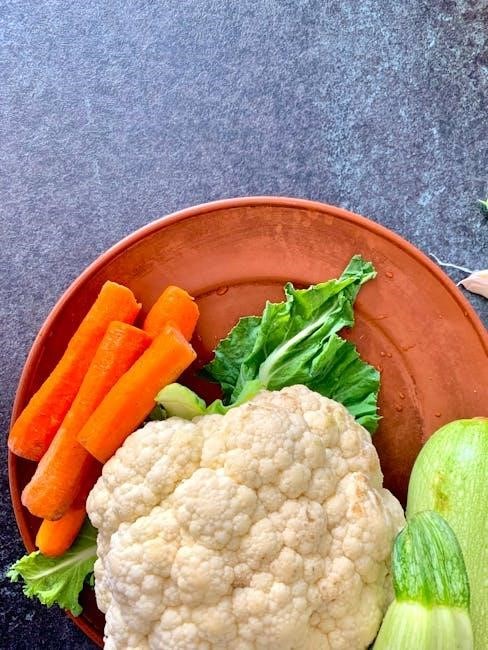
Foods to Avoid on a Bland Diet
Foods That Contribute to Indigestion (Spicy, Fried, High-Fat, High-Fiber Foods, Alcohol, Caffeine, Chocolate)
When following a bland diet, it’s crucial to avoid foods and beverages known to trigger indigestion and irritate the digestive system. Spicy foods, with their intense flavors, can exacerbate discomfort. Fried and high-fat foods are harder to digest, leading to potential bloating and pain. High-fiber foods, while generally healthy, can be difficult to process. Alcohol, caffeine, and chocolate should be omitted. Peppermint is another item to avoid. These restrictions help to soothe the gut and promote healing.
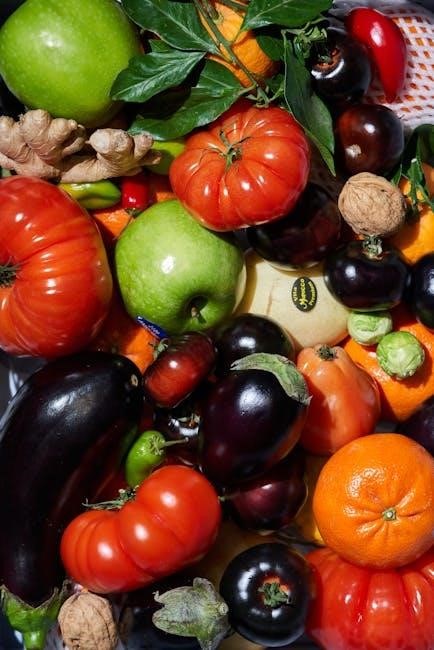
Bland Diet Recipes
Simple Recipes (Rice-Based, Turkey Meatballs, Yogurt with Honey)
Bland diet recipes focus on simplicity. Rice-based dishes are gentle, while turkey meatballs offer a lean protein source. Yogurt with honey provides a soothing and easily digestible option for individuals.
Simple Recipes (Rice-Based, Turkey Meatballs, Yogurt with Honey)
For a rice-based recipe, combine white rice with ground chicken or turkey, and water, then simmer. Turkey meatballs, a lean alternative, are easy to make and versatile. Plain yogurt with honey is a comforting option, providing a straightforward, easily digestible meal. These recipes are designed to be gentle on the stomach while providing essential nutrients. They avoid ingredients that commonly trigger digestive issues, making them suitable for those adhering to a bland diet. These simple recipes offer variety and ease of preparation.
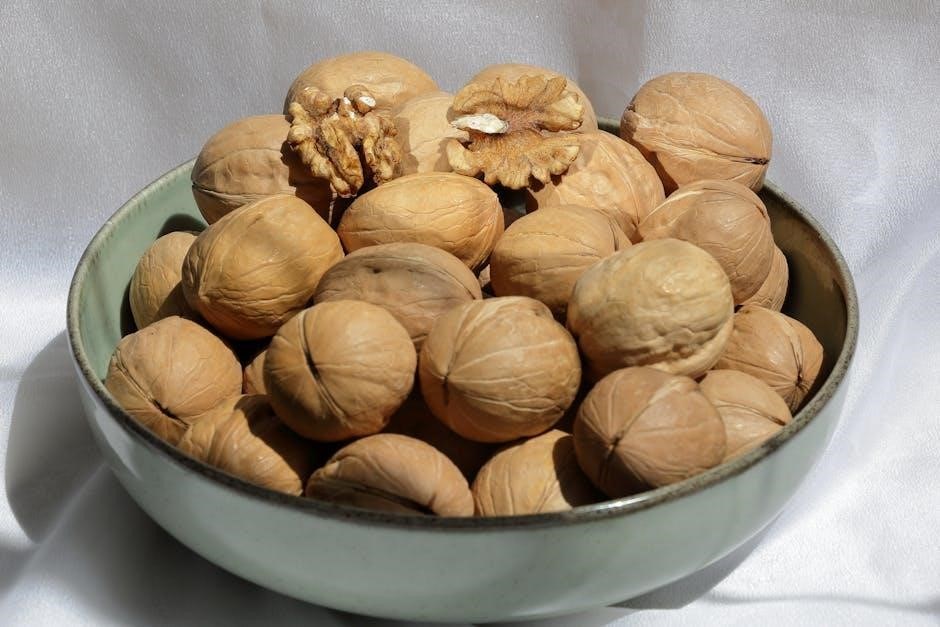
Bland Diet for Gastrointestinal Illnesses
Conditions That Benefit from a Bland Diet (Peptic Ulcers, Gastritis)
A bland diet is beneficial for patients dealing with gastrointestinal disorders like peptic ulcers and gastritis. It helps alleviate symptoms and allows the digestive system to recover effectively.
Conditions That Benefit from a Bland Diet (Peptic Ulcers, Gastritis)
Patients suffering from peptic ulcers, gastritis, and other gastrointestinal disorders can greatly benefit from adhering to a bland diet. This dietary approach minimizes irritation to the digestive tract, providing relief from uncomfortable symptoms. The bland diet’s emphasis on easily digestible foods helps to soothe the stomach lining and reduce inflammation. By avoiding foods that stimulate acid production or are difficult to process, the bland diet promotes healing and overall digestive well-being. This makes it a valuable tool in managing various gastrointestinal conditions effectively.
Tips for Following a Bland Diet
Eating Habits (Small, Frequent Meals, Eating Slowly)
Eat small, frequent meals throughout the day, instead of three large ones. Chew your food slowly and thoroughly. Try to remain relaxed at mealtimes to aid digestion and improve comfort.
Eating Habits (Small, Frequent Meals, Eating Slowly)
When following a bland diet, adopting specific eating habits can significantly improve comfort and digestion. Opt for small, frequent meals rather than three large ones to ease the burden on your digestive system. Eating smaller portions more often can prevent overfilling and reduce the likelihood of indigestion or discomfort. Always eat slowly, taking your time to chew food thoroughly. Thorough chewing aids the digestive process by breaking down food into smaller, more manageable pieces. Finally, try to maintain a relaxed state during mealtimes, as stress and tension can negatively impact digestion.
Transitioning back to a regular diet should occur gradually. Introduce regular foods slowly, monitoring your body’s response. This helps avoid overwhelming your digestive system after it has been resting.
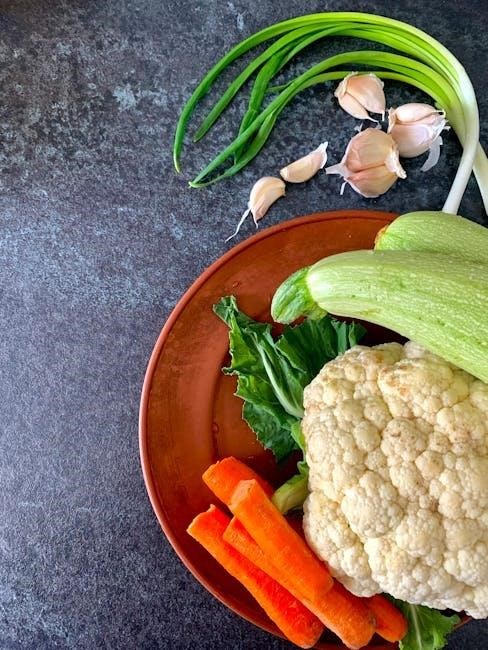
Transitioning Off the Bland Diet
Gradual Reintroduction of Regular Foods
When transitioning off a bland diet, introduce regular foods slowly over about a week. Start by mixing 25% of your regular diet with 75% of the bland diet for two days. If stools remain firm, increase the regular diet in 25% increments every two days until you’re fully on your normal diet. This gradual approach helps your digestive system adjust without causing discomfort. Monitor for any adverse reactions like indigestion or diarrhea, and adjust the pace as needed to ensure a smooth transition.
When following a bland diet, chew your food thoroughly and avoid rushing during meals. If possible rest before and after eating. This aids digestion and minimizes potential gastrointestinal distress.

General Advice for Bland Diets
Chewing Food Well and Avoiding Rush
To maximize the benefits of a bland diet, it is important to adopt mindful eating habits. Always chew food thoroughly to break it down properly, which eases the burden on your digestive system. Eating slowly not only aids digestion but also helps you to be more aware of your satiety cues, preventing overeating. Avoid rushing through meals, and try to remain relaxed before, during, and after eating. A calm state supports better digestion and nutrient absorption. Allowing yourself adequate time to eat promotes overall comfort and reduces the likelihood of digestive discomfort or irritation.
A bland diet restricts high-fiber foods because they are harder to digest. Lowering fiber intake allows the digestive system to rest, reducing irritation and promoting healing during gastrointestinal distress.
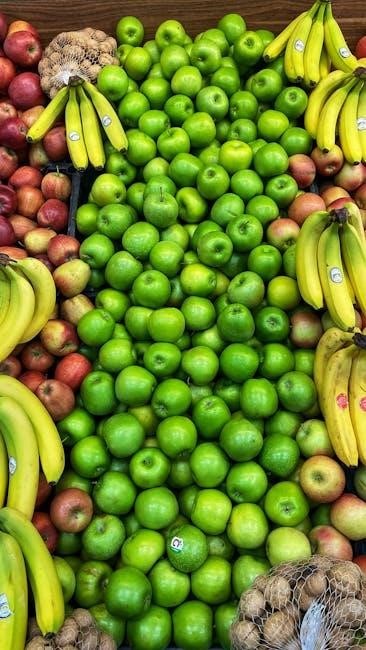
Bland Diet and Fiber Intake
Why Low Fiber is Important
The reason a bland diet emphasizes low fiber intake is due to fiber’s impact on the digestive process. High-fiber foods are more difficult for the body to break down, requiring more effort from the digestive system. When the digestive tract is already irritated or inflamed, as in conditions like gastritis or peptic ulcers, consuming high-fiber foods can exacerbate symptoms such as bloating, gas, and abdominal discomfort. A low-fiber approach helps to minimize digestive workload, allowing the gut to rest and recover more effectively and quickly and also to promote healing.
When following a bland diet, soft foods are key. Cooked foods are easier to digest than raw foods. This is because cooking breaks down fibers, easing digestion and minimizing irritation.
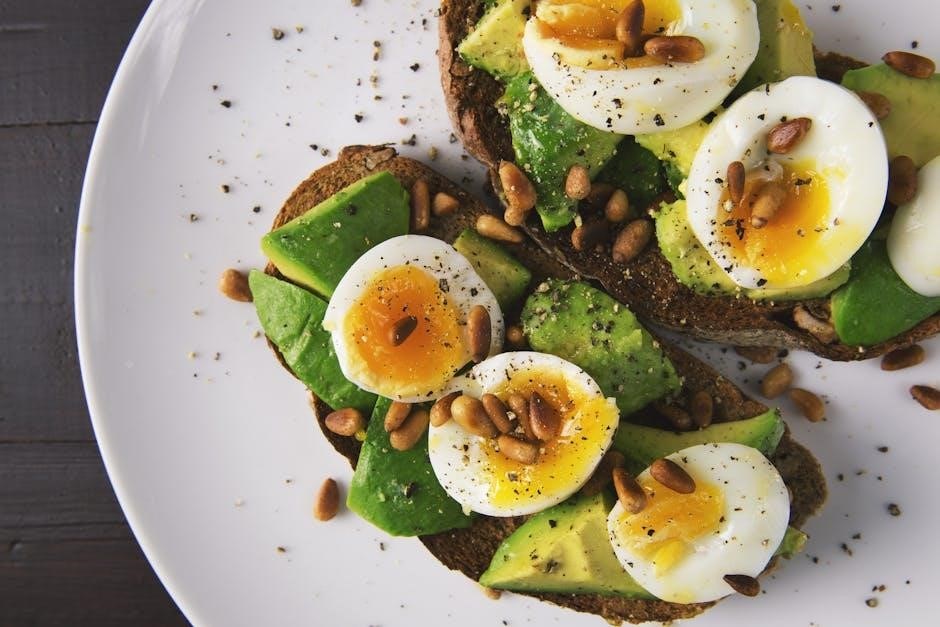
Bland Diet and Soft Foods
Importance of Cooked vs. Raw Foods
On a bland diet, prioritizing cooked foods over raw options is crucial for digestive comfort. Cooking softens foods and breaks down complex fibers, making them significantly easier to digest. Raw foods, with their intact fibers, can be harder on the digestive system, potentially leading to irritation or discomfort. Therefore, opt for cooked vegetables, fruits, and meats to ease the digestive process. This allows the gut to rest and recover while still receiving essential nutrients. Remember to avoid adding excessive seasonings or fats during the cooking process.

